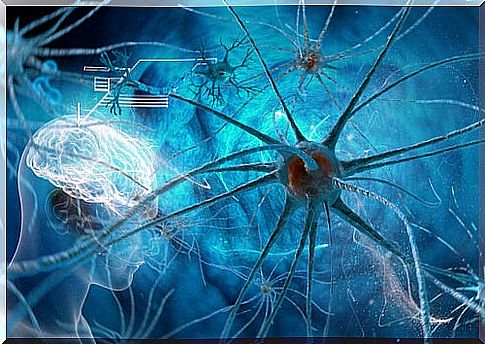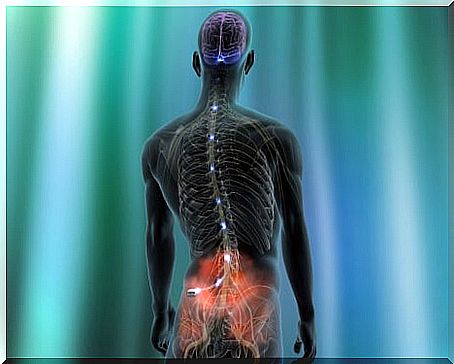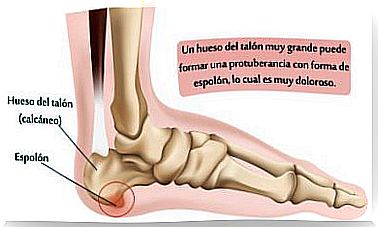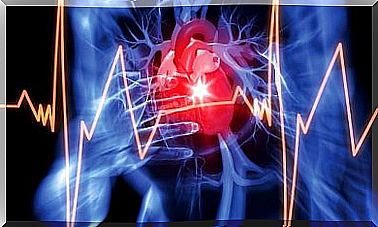Neuropathic Pain: That Annoying Nocturnal Companion
The expression “neuropathic pain” may sound a bit strange to us. However, if we talk about that pain, itching or numbness in the hands and feet that intensifies at night, it is possible that the subject is very familiar to you.
This type of disorder looks a lot like an electric shock. Instantly it makes us feel burning or tingling and, although it may disappear in a few weeks, it returns sooner with more force, to the point of preventing us from conciliating a deep and restorative sleep.
Neuropathic pain affects 10% of the population. It subtracts quality of life and, in turn, it can also be said that there is no effective treatment that will make this problem disappear completely. Likewise, it can be accompanied by other types of symptoms that are worth taking into account.
If this is your case, we recommend you go to a good specialist. There are different types of therapeutic approaches and, the most appropriate thing is to try those that best suit our characteristics.
For our part, we show you below some basic keys and we explain why this ailment intensifies at night.
What causes neuropathic pain?
Neuropathic pain is caused by a small alteration of the nervous system. It is also associated with those who suffer from chronic pain. Sometimes you can find some injuries in the spinal cord that lead to these annoying discharges.
Likewise, neuropathic pain can also be related to immune disorders or peripheral nerve problems. So much so that in many cases the discomfort is located in the trigeminal nerve of the face or in the intercostal nerve.
It is a very complex type of ailment; so much so that it goes far beyond the classic numbness of the hands and feet. Therefore, it will always be the specialists who offer us an adequate diagnosis according to our symptoms.

What symptoms can I have?
Neuropathic pain is chronic. As we pointed out at the beginning, it comes and goes, seasonally. However, patients always complain that the pain is excruciating at night.
To the localized discomfort of the feet and hands, various sensitive alterations are also usually added throughout the body, that is, just by touching each other we can feel pain.
Why is the discomfort more intense at night?
Specialists tell us that neuropathic pain is underdiagnosed. If this is the case, it is due to several reasons:
- This pain is not related to the bones or joints. We speak of nerves and neuroglia, that is, a type of central sensitization located in the glial cells.
- Neuropathic pain doesn’t go away with an aspirin. In fact, it is common for patients to be desperate at finding no relief. Little by little, and if a solution is not obtained, we can feel a certain dejection.
On the other hand, if the pain intensifies at night, it is because of our stillness. While we are in movement our body calms, in a way, this alteration in the nerves.
However, when remaining at rest, the electrical discharges are more intense. The muscles are no longer exercised and the tension is now concentrated to a greater degree in the extremities, such as the feet and hands. Likewise, hypersensitivity also intensifies at night. It’s like having pins all over your body.
Is there an effective therapy for neuropathic pain?
We are facing chronic pain. This requires, above all, awareness. That annoyance, those pains that, at times, incapacitate us and take away our sleep, will always accompany us. Now, the key is not in surrender, but in that continuous search to achieve an adequate quality of life.
This battle is very personal. This means that while a friend of ours may do well with a certain type of treatment, we may need a different one. Therefore, it is important that we consider several alternatives:
- Medication. As we have indicated before, drugs do not guarantee that neuropathic pain disappears 100%. However, we must try various medications, such as anti-inflammatory steroids or others that our doctor recommends.
- Passive physiotherapy, such as massages or the application of heat-cold, can provide relief. Likewise, active therapies such as moderate exercise can also help us.
- Surgery. It will be the specialists who inform us about the possibility or not of this option with which to find that focus that causes the pain and correct it.

Neurostimulators
These types of clinical techniques also tend to offer a good quality of life. It involves sending small, very gentle electrical impulses to the epidural space near the spine.
In this way, the perception of severe pain is relieved by replacing it with an almost imperceptible tingling sensation.
To conclude, we will say that neuropathic pain is a very delicate reality for which there are many types of treatments. It is appropriate that we go testing them to see which one suits us and thus reduce the impact of pain.









